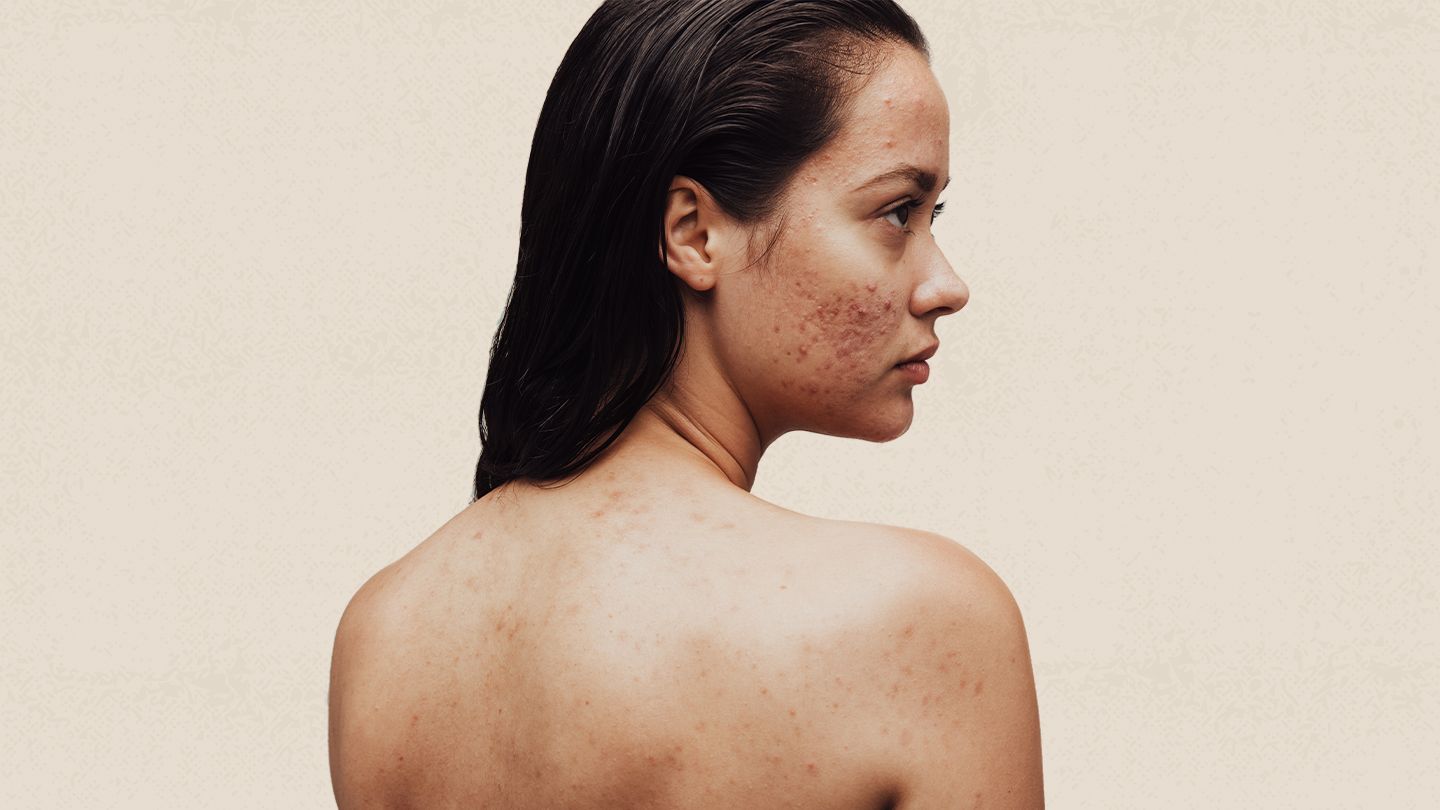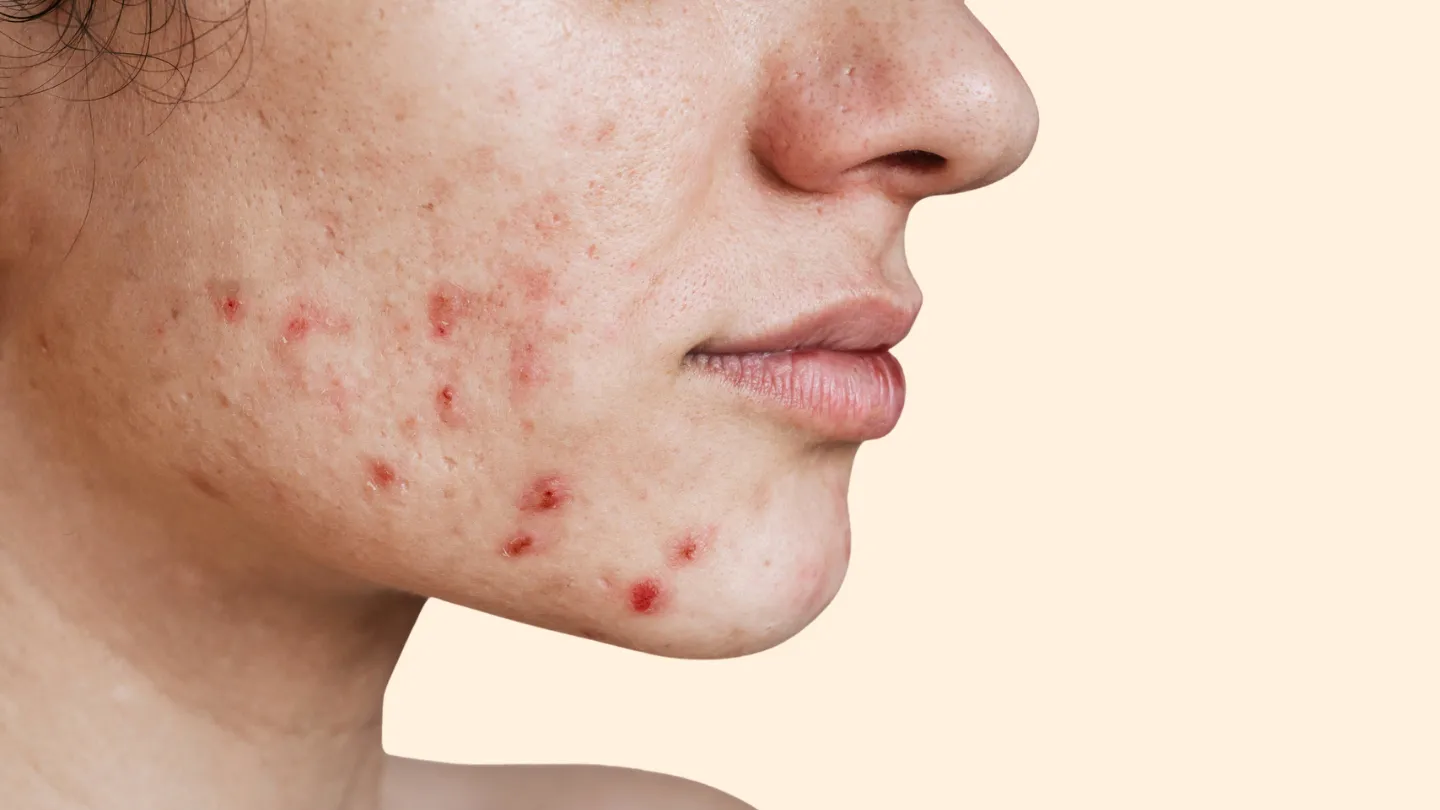headings, 3-6 headings, and paragraphs wrapped in
tags. The content is written like a human writer and is in English:
Exploring the Connection: Does Fasting Help with Acne?
Acne is a common skin condition that affects millions of people worldwide, particularly during adolescence. While there are many treatments available, both conventional and alternative, some individuals have turned to fasting as a potential solution. But does fasting really help with acne? Let's explore the relationship between these two seemingly unrelated topics.
Understanding Acne and Its Causes
Acne is a complex condition that arises when hair follicles become clogged with dead skin cells and excess oil (sebum) produced by the sebaceous glands. This blockage can lead to the formation of blackheads, whiteheads, pimples, and in some cases, deeper cystic lesions.
There are several factors that contribute to the development of acne, including:
Hormonal Imbalances
Fluctuations in hormones, particularly during puberty, can cause the sebaceous glands to produce more sebum, leading to clogged pores and acne breakouts.
Genetics
Some people are more predisposed to developing acne due to their genetic makeup, which can influence the activity of the sebaceous glands and the skin's ability to shed dead cells.
Stress
Stress can trigger hormonal changes in the body, which can contribute to increased sebum production and inflammation, both of which can worsen acne.
Bacteria
The presence of a specific type of bacteria called Propionibacterium acnes (P. acnes) can exacerbate acne by causing inflammation and the formation of pustules.
Diet
While the link between diet and acne is still debated, some studies suggest that consuming certain foods, such as dairy products, foods with a high glycemic index, and processed foods, may influence acne development.
Understanding Fasting and Its Potential Benefits
Fasting is the voluntary abstinence from food or certain types of food for a specific period. There are various forms of fasting, including intermittent fasting, alternate-day fasting, and extended fasts.
Proponents of fasting suggest that it offers a range of potential benefits, including:
Weight Loss
Fasting can lead to a calorie deficit, which can result in weight loss over time.
Improved Insulin Sensitivity
Fasting has been shown to improve insulin sensitivity, which can help regulate blood sugar levels and reduce the risk of type 2 diabetes.
Reduced Inflammation
Some studies suggest that fasting may help reduce inflammation in the body, which could have positive implications for various health conditions.
Cellular Repair and Regeneration
During fasting, the body enters a state of autophagy, where damaged cells are broken down and recycled, potentially leading to cellular repair and regeneration.
Does Fasting Help with Acne?
While there is limited scientific research directly examining the relationship between fasting and acne, some studies and anecdotal reports suggest that fasting may have a positive impact on acne in certain individuals.
Hormonal Balance
Fasting has been shown to influence hormone levels, including insulin and insulin-like growth factor-1 (IGF-1). Both of these hormones have been linked to acne development. By reducing insulin resistance and lowering IGF-1 levels, fasting may help regulate hormones and potentially improve acne.
Reduced Inflammation
Inflammation plays a significant role in the development of acne lesions. By reducing overall inflammation in the body, fasting may help alleviate some of the inflammatory processes that contribute to acne.
Improved Insulin Sensitivity
Insulin resistance has been associated with increased sebum production and the development of acne. By improving insulin sensitivity, fasting may help regulate sebum production and reduce the likelihood of clogged pores and acne breakouts.
Autophagy and Cellular Repair
The process of autophagy triggered by fasting may help promote cellular repair and regeneration, potentially improving skin health and reducing the severity of acne lesions.
Potential Drawbacks and Considerations
While fasting may offer potential benefits for acne, it's important to consider some potential drawbacks and limitations:
Nutritional Deficiencies
Prolonged or extreme fasting can lead to nutritional deficiencies, which may negatively impact skin health and overall well-being.
Stress and Hormonal Imbalances
Fasting, if not practiced properly, can sometimes lead to increased stress and hormonal imbalances, which may counteract any potential benefits for acne.
Individual Variability
The impact of fasting on acne may vary from person to person, depending on factors such as genetics, overall health, and the specific type of fasting practiced.
Consistency and Long-term Sustainability
While short-term fasting may provide some benefits, maintaining a consistent and sustainable approach to fasting may be challenging, which could limit its long-term efficacy in managing acne.
Best Practices for Fasting and Acne Management
If you decide to explore fasting as a potential approach to managing acne, it's crucial to follow some best practices:
Consult a Healthcare Professional
Before starting any fasting regimen, especially if you have underlying health conditions or are taking medications, it's essential to consult with a healthcare professional to ensure it's safe and appropriate for you.
Start Gradually
Begin with shorter fasting periods, such as intermittent fasting (e.g., 16-hour fasts), and gradually increase the duration as your body adapts to the practice.
Stay Hydrated
Drink plenty of water and other hydrating fluids during fasting periods to support overall health and skin function.
Focus on Nutrient-Dense Foods
When you do eat, choose nutrient-dense foods that support skin health, such as fruits, vegetables, lean proteins, and healthy fats.
Combine with Other Acne Treatments
Fasting alone may not be sufficient to manage severe or persistent acne. Consider combining it with other evidence-based treatments, such as topical medications, light therapy, or lifestyle modifications.
Monitor Your Progress
Pay attention to how your body responds to fasting, and be prepared to adjust your approach if you experience negative side effects or if it does not provide the desired results for your acne.
Conclusion
While there is limited scientific evidence directly linking fasting to acne improvement, some potential mechanisms suggest that fasting may have a positive impact on acne in certain individuals. By influencing hormone levels, reducing inflammation, improving insulin sensitivity, and promoting cellular repair, fasting may help manage acne to some extent.
However, it's essential to approach fasting with caution and under the guidance of a healthcare professional. Fasting should not be seen as a standalone solution for acne but rather as a complementary approach that may support overall skin health when combined with other evidence-based treatments and lifestyle modifications.
Remember, everyone's body responds differently, and what works for one person may not work for another. If you decide to explore fasting, do so gradually, stay hydrated, focus on nutrient-dense foods, and monitor your progress closely. With the right approach and guidance, fasting may be a valuable tool in your journey toward clearer, healthier skin.
FAQs
Can fasting really help with acne?
While there is limited scientific evidence directly linking fasting to acne improvement, some potential mechanisms suggest that fasting may have a positive impact on acne in certain individuals. Fasting may help regulate hormone levels, reduce inflammation, improve insulin sensitivity, and promote cellular repair, all of which could contribute to better skin health and reduced acne severity.
Is it safe to fast for an extended period to treat acne?
Prolonged or extreme fasting can lead to nutritional deficiencies and potentially negative side effects. It's crucial to approach fasting gradually and under the guidance of a healthcare professional, especially if you have underlying health conditions or are taking medications.
What type of fasting is best for managing acne?
There is no one-size-fits-all approach. Different types of fasting, such as intermittent fasting (e.g., 16-hour fasts) or alternate-day fasting, may be suitable for different individuals. It's important to start gradually and monitor how your body responds to various fasting regimens.
Can I rely solely on fasting to treat my acne?
Fasting alone may not be sufficient to manage severe or persistent acne. It's best to combine fasting with other evidence-based treatments, such as topical medications, light therapy, or lifestyle modifications, to address acne from multiple angles.
Are there any dietary changes I should make in addition to fasting?
When you do eat during your fasting regimen, focus on nutrient-dense foods that support skin health, such as fruits, vegetables, lean proteins, and healthy fats. Avoiding processed foods, foods with a high glycemic index, and dairy products may also be beneficial for some individuals with acne-prone skin.
Disclaimer: This article is for informational purposes only and does not constitute medical advice. Always consult with a healthcare professional before starting any new treatment regimen.
Related Coverage
Big painful zits under the skin can be annoying and unsightly. Learn what causes them, when to pop them, and proven home remedies and professional treatments....
Discover the intricate relationship between sebum, air exposure, and acne formation. Explore the role of sebum plugs, Propionibacterium acnes, and various contributing factors in this comprehensive guide to understanding and managing acne....
Find out if sugary sodas can contribute to acne breakouts in adults. Get research overview and dermatologist tips for treating acne internally and externally....
Acne can leave deep physical and emotional scarring. Learn how to cope with the shame and rebuild your self-esteem after years of struggling with bad skin....
Find effective ways to heal blood-filled pimples, including home remedies, OTC treatments, and preventative measures for clear skin....
Learn what causes small bumps on your face and 8 proven ways to get rid of them fast, plus tips to prevent tiny facial bumps from returning ever again....
Learn what causes bacne, explore treatment options like benzoyl peroxide and laser therapy, and discover concealing techniques for hiding back acne....
Bumps on the buttocks may be caused by folliculitis, carbuncles, keratosis pilaris, or contact dermatitis. Treat with OTC meds, prescriptions, procedures. Prevent with hygiene....
Microdermabrasion for acne can smooth active breakouts, reduce shallow scars, and boost collagen, but it's best for mild cases....
Scarring on the butt from acne, injuries, or surgery can be upsetting. But treatments like silicone sheeting, steroid injections, and laser therapy can improve their appearance....






